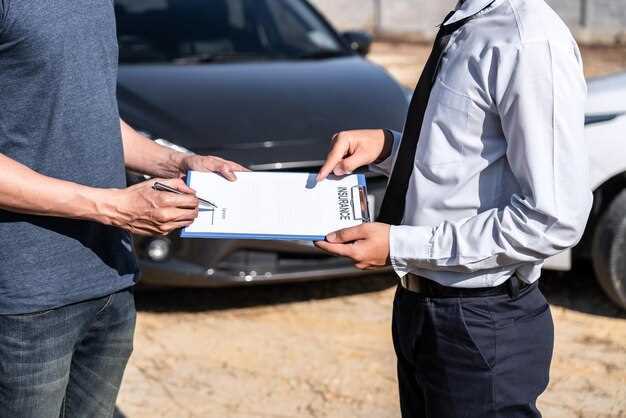
Organizing a car event can be an exhilarating endeavor, but it requires meticulous planning and attention to detail, particularly when it comes to the necessary permits. Securing the right permits is not only a legal requirement but also a critical step in ensuring the safety and success of your event. This article will guide you through the essential permits you need to consider to create a seamless and enjoyable experience for participants and spectators alike.
Different types of car events, whether they are exhibitions, races, or car shows, will have distinct permit requirements based on the location, scale, and nature of the event. It’s important to understand the local regulations that govern public gatherings and motor vehicle activities. Failure to obtain the proper permits can lead to disruptions, fines, or even the cancellation of the event, tarnishing the efforts you’ve put into organizing it.
In this comprehensive guide, we will discuss the key permits you should be aware of, the processes involved in obtaining them, and tips for navigating the bureaucratic landscape to set the stage for a successful car event. By arming yourself with this knowledge, you can focus on what truly matters–creating an unforgettable experience for all attendees.
Understanding Local Regulations and Requirements

When organizing a car event, one of the most critical aspects is understanding the local regulations and requirements that govern such gatherings. Each jurisdiction has specific legal frameworks that dictate the types of permits needed, potential liabilities, and safety protocols that must be followed.
Legal compliance is essential to ensure the event runs smoothly and prevents any potential legal issues. Before diving into the logistics, it is advisable to contact local authorities or check their websites for guidelines related to car events. This can include restrictions on locations, noise ordinances, and necessary safety measures.
Obtaining the right permits is a fundamental step in the planning process. Commonly required permits may include a special event permit, street closure permit, and permits for the sale of food and alcohol. Failure to secure these permits can lead to fines or the cancellation of the event.
Additionally, depending on the location and nature of the event, insurance coverage may be required. This legal safeguard protects organizers from potential claims and damages arising from accidents or incidents during the event. Understanding and fulfilling these requirements will not only keep the event compliant but also enhance its overall safety and success.
Finally, engaging with local community members and stakeholders can further aid in navigating the regulatory landscape. By fostering positive relationships with local authorities, organizers can gain insights and support, making the process of securing necessary permits more streamlined and efficient.
Navigating Health and Safety Permits for Car Gatherings
Organizing a successful car gathering necessitates a thorough understanding of health and safety permits. These legal documents are essential to ensure the event complies with local regulations and provides a safe environment for participants and spectators alike. Securing the appropriate permits not only mitigates potential liabilities but also fosters trust among attendees.
Firstly, it is crucial to research the specific health and safety regulations applicable in your event’s location. Different regions may have varying requirements based on the scale of the event, anticipated crowd size, and type of activities planned. Common permits may include event permits, noise permits, and food service permits if vendors are involved.
In addition to event-specific permits, it is essential to consider crowd management strategies, which may require additional legal documentation. Having an adequate number of medical personnel on-site can often be a requirement outlined in the permits, ensuring that emergency response measures are in place. It’s advisable to create a comprehensive safety plan that details how you will handle emergencies, including crowd control and first aid responses.
Furthermore, liability insurance may be a necessary component when applying for permits. Having insurance coverage protects both organizers and participants in case of unforeseen accidents or incidents. Ensure that your insurance policy aligns with the requirements set forth by local authorities.
Engaging with local law enforcement and public safety officials early in the planning process can provide clarity on any additional permits you may need. Communication with these agencies can help streamline the permitting process and address any specific concerns that might arise, thereby improving safety protocols for all involved.
In conclusion, navigating health and safety permits is a critical aspect of organizing car gatherings. Familiarizing yourself with legal requirements, obtaining necessary documentation, and planning for health emergencies contribute significantly to the event’s overall success and safety.
Securing Insurance and Liability Coverage for Events

When organizing an event, securing the right insurance and liability coverage is a critical step that cannot be overlooked. This ensures not only financial protection but also legal compliance. The right insurance can safeguard against various risks, including accidents, property damage, and potential legal claims arising from the event.
Types of Insurance Coverage
Event organizers typically require several types of insurance, such as general liability insurance, which covers bodily injury and property damage to third parties. Additionally, event cancellation insurance may be necessary to protect against unforeseen circumstances that could disrupt the event. If your event involves vehicles, specialized automotive liability coverage is also critical.
Understanding Legal Requirements
Different jurisdictions have varying legal requirements regarding insurance for public events. It is essential to consult with local authorities or legal professionals to determine the minimum coverage needed. This can help mitigate potential legal issues should any incidents occur during the event.
Vendor and Participant Insurance
In some cases, vendors and participants may need to provide proof of their insurance coverage. Requiring certificates of insurance not only minimizes your liability but also ensures that all involved parties are protected. This can be particularly important for activities that involve significant risk, such as stunt driving or racing.
Working with Insurance Professionals
Collaborating with experienced insurance agents or brokers can streamline the process of obtaining the appropriate coverage. They can provide valuable insights regarding the specific needs of your event and help tailor a policy that adequately addresses potential risks. Ensuring you have the right forms and documentation is also crucial in establishing the legal validity of your coverage.
In conclusion, securing insurance and liability coverage is essential for a successful car event. By understanding the types of coverage needed, complying with local regulations, and working with insurance professionals, organizers can protect themselves against legal and financial repercussions.

